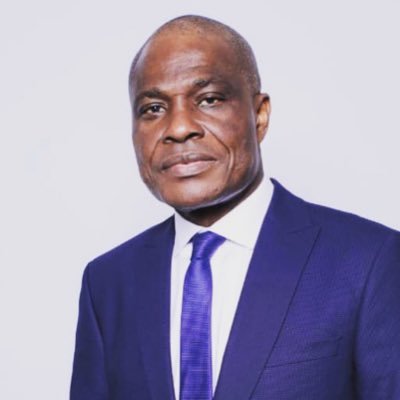In a long-awaited announcement, Martin Fayulu, a prominent opposition figure, confirmed his candidacy for the upcoming presidential election scheduled to take place on December 20. Fayulu will face the incumbent president, Félix Tshisekedi, who is seeking re-election.
Addressing reporters in Kinshasa on Saturday, Fayulu, who had kept the public in suspense for weeks, stated, “The Lamuka coalition, meaning ‘Wake up’ in Lingala, has decided to run for the presidency.” He emphasized the coalition’s commitment to fight for transparency in the electoral process. “We were not granted an audit of the electoral register, but we will ensure its surveillance during the vote,” Fayulu added, referring to his longstanding claim that victory was stolen from him in the presidential election of December 2018.
Back in July 2022, Fayulu’s party, Ecidé (Engagement for Citizenship and Development), a member of the Lamuka coalition, had officially nominated him as their candidate for the upcoming presidential election, along with the legislative, provincial, and municipal elections. However, a year later, while refusing to use the term “boycott,” Fayulu had stated that if a new audit of the electoral register was not conducted, his party would not submit their candidacies.
Fayulu contends that out of the 43.9 million registered voters, approximately “10 million are fictitious.” He firmly asserted, “This time, it will not pass. We refuse to legitimize fraud. We must mobilize to prevent the preparation of this electoral parody.”
It is interesting to note that Fayulu’s party did not field any candidates in the legislative and provincial elections, leading some to speculate that the 66-year-old former executive of the oil giant ExxonMobil may opt not to run for the presidency either.
While a new audit of the electoral register was not performed, Fayulu maintained that the pressure exerted succeeded in making progress. He pointed out that the chairman of the electoral commission recently declared that the election results would be published “polling station by polling station.”
Martin Fayulu’s background
During the presidential election held in December 2018, Fayulu faced off against Emmanuel Ramazani Shadary, the candidate representing the ruling party, and Félix Tshisekedi, from the historic opposition party Union for Democracy and Social Progress (UDPS). The final results declared Tshisekedi as the winner with 38.5% of the vote, while Fayulu secured second place with 34.8%, and Ramazani came in third with 23%.
However, Fayulu adamantly claimed that he had actually won with 61% of the vote and accused the election of being a “coup.” Tshisekedi, on the other hand, dismissed Fayulu’s allegations and insisted that he had legitimately emerged victorious.
As the Democratic Republic of Congo prepares for yet another crucial election, all eyes will be on the contest between Fayulu and Tshisekedi, which promises to be a significant moment in the country’s political history.
Image Credit: Martin Fayulu/X





